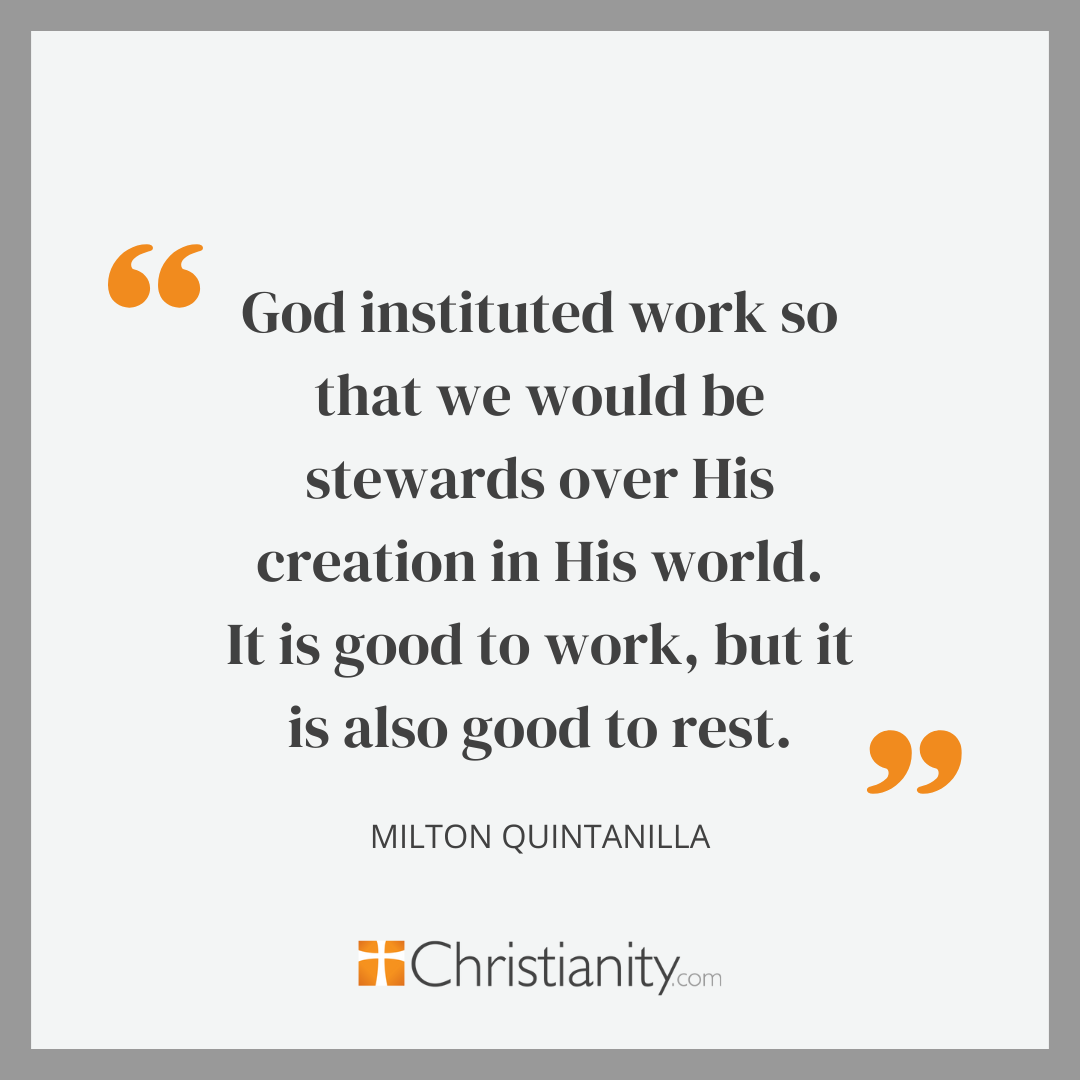Significant support has been called for a four-day workweek, which psychologists and economists contend would reduce burnout and improve mental health. This mindset takes a more minimalistic approach, along the lines of “work smarter, not harder,” as it emphasizes recognizing one’s limitations of overworking and the need for rest. Several companies have already implemented this model, including Atom Bank, which received a 500 percent surge in job applicants after switching to a four-day workweek.
We have all experienced a type of burnout or fatigue regarding our jobs, where we desire a vacation or even a better job. Sometimes one can become overconsumed with a job to the point where it takes over one’s life, away from making time for everything and everyone else. Moreover, you end up not making time for yourself and for God, which can ultimately negatively affect one’s well-being. That being said, my fellow brothers and sisters in Christ, let us consider the following question: What does the 4-day workweek say about rest, work, and God’s design for balance?
Work Was God's Idea
I remember hearing someone years ago say that work is a result of the fall in Genesis 3. However, that is incorrect, as work was instituted in Genesis 2:15, when the Lord took Adam “took the man and put him in the garden of Eden to work it and keep it.” Notice that the initiative was taken by God, not as a punishment, but as what He had designed the first man to do.
The Lord subsequently blessed both Adam and Eve and told them, “Be fruitful and multiply, and fill the earth and subdue it; rule over the fish of the sea and the birds of the air and every creature that crawls upon the earth” (Genesis 2:28). So what was the punishment in Genesis 3? That work would become more difficult.
“And to Adam he said, 'Because you have listened to the voice of your wife and have eaten of the tree of which I commanded you, ‘You shall not eat of it,’ cursed is the ground because of you; in pain you shall eat of it all the days of your life; thorns and thistles it shall bring forth for you; and you shall eat the plants of the field. By the sweat of your face you shall eat bread, till you return to the ground, for out of it you were taken; for you are dust, and to dust you shall return.” - Genesis 3:17-19
Nevertheless, God instituted work so that we would be stewards over His creation in His world. It is good to work, but it is also good to rest.

The Theology of Rest
Christians know this very well regarding taking a day of rest from one’s job. In the Bible, we see that God took six days in the creation of life and on the seventh day, He rested (Genesis 2:1-2). Additionally, God’s people are to follow suit in the fourth of the 10 commandments when He spoke to Moses.
“Remember the Sabbath day, to keep it holy. Six days you shall labor, and do all your work, but the seventh day is a Sabbath to the LORD your God. On it you shall not do any work, you, or your son, or your daughter, your male servant, or your female servant, or your livestock, or the sojourner who is within your gates. For in six days the LORD made the heavens and the earth, the sea, and all that is in them, and rested on the seventh day. Therefore, the LORD blessed the Sabbath day and made it holy.” Exodus 20:8-11 (ESV)
Israel was to model God’s day of rest on the seventh day since that’s the same day God ceased from creation. Although God Himself does not need rest like us, He laid it down for us to be well rested and renewed. It is easy to be like Martha, who was constantly restless as she was working around the house, rather than Mary, who was seated at the feet of Jesus.
“But the Lord answered her, 'Martha, Martha, you are anxious and troubled about many things, but one thing is necessary. Mary has chosen the good portion, which will not be taken away from her,” (Luke 10:41-42)
This text is one worth considering as it reorients us back to Christ, our true rest. The moment we focus more on work, we fall into the risk of overworking and subsequent burnout. But the greatest danger is that we end up making an idol out of our work over God. This type of mentality is ultimately futile, as working all the time is unsatisfactory, or, as the author of Ecclesiastes often says in his book, like “chasing the wind.”
So how do we understand God’s design for balance? By understanding that, He has made us both work and rest. That’s balance. We have to work hard, but also rest. And vice-versa, we must have sufficient rest, but we must also work. Overall, true balance comes with having God in mind, doing all things to His glory (1 Cor. 10:31). This theocentric mentality reminds us that our lives belong to Him and that we are to be stewards of what He has given us. It is also a reminder that we are to trust in Him for His provision in our lives and not be anxious about life, but to “seek first the Kingdom of God and His righteousness, and everything will be added to you” (Matthew 6:33).
So, in application to a 4-day workweek, I would say that it allows us to recognize that our lives do not have to be consumed by work and that we can have more balance in our lives. It also reminds us that our lives are in God’s hands and that our identity is found in Him, not in work, status, or prestige. Although work is good, it can also leave us with a performance mentality in which we must always actively do something productive; otherwise, we will be unsatisfied.
Another thing to consider is that we can utilize more time to serve the church, including fellowshipping with brothers and sisters in Christ, which otherwise would not have happened if consumed by a hectic workweek. Our relationships are essential to our well-being because God designed us for connection. We are not meant to live in isolation. Remember, tomorrow is never promised so make every effort to spend time with family, friends, and loved ones. Regarding the church, the author of Hebrews contends that we must “not neglect to meet together, as is the habit of some, but encouraging one another, and all the more as you see the Day drawing near.” (Hebrews 10:25).
In conclusion, I pray that we take better care of ourselves, whether we have a 4-day workweek or not. Be reminded that our rest is in the Lord and that we should continually trust Him with our lives, including our jobs. Let us practice self-care, making time for ourselves and also with others. Overall, I pray that we would understand that balance first starts in our relationship to God and that He comes first above all else. Our lives belong to Him.




